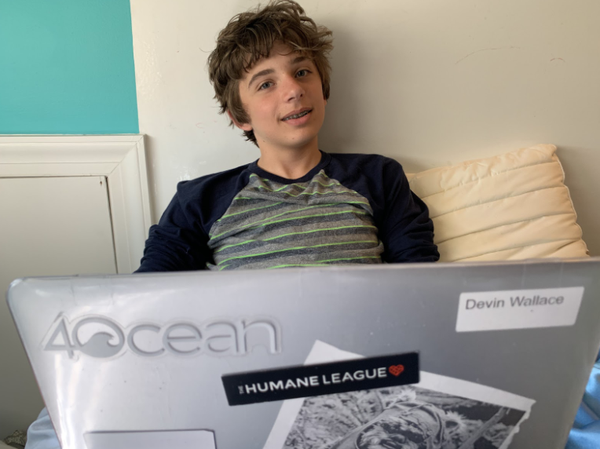[ 737 words ]
As leaders, how do we bridge the seemingly incompatible views dispersed across America, featuring love and compassion, and numbers and financial cost?
We recognize the insight present in each nugget of truth, integrating them into a fuller understanding of our complex world.
I decided to work with my 13-year old son, Devin, to better understand our COVID-19 dilemma. Devin began by reading contrasting perspectives presented by two close colleagues.
Drew Harris emphasizes compassion in his support for social distancing: by following those practices we show love for those at greatest risk and trust in the institutions that protect health. In contrast, Paul Sloate emphasizes calculation and the cost of our actions: COVID-19 death rates are likely (only) “0.4% to 0.7%” versus “0.15%” for the common flu, and our chosen social policy is leading to “inevitable recession and bankruptcies”. These two perspectives seem to clash, in large part because they’re difficult to compare.

Wanting to reach a deeper understanding of the world today.
To help Devin, I present the arguments in terms of both human emotion and cold logic. The emotional call of Drew’s article centers around reducing death today. I can appreciate the cost:
- Through social distancing, for example, we mitigate risk for my friend, Jonathan, who needs dialysis. If he gets ill, Jonathan’s doctor says he’d “Find himself in a separate room without treatment”: he’ll likely die.
- We make our own everyday risks bearable by reducing emergency room lines: if Devin’s brother gets a deep cut while catching a green balloon, he’ll get immediate stitches rather than risk the long-lasting damage of a protracted hospital wait.
- We support my physician sister-in-law who shed a single tear into her week-old protective mask as she stood, alone, with the first COVID-19 death at her hospital.
There is an equally stark, human side to the future pain Paul emphasizes as the cost of our quarantine:
- Without a livelihood, my friend, L, is forced back to his parent’s home, 25 years after moving out. When asked about the impact on his self confidence, L only shrugs.
- A family friend who clawed her way up to middle class with a decade of effort now risks homelessness if government support doesn’t pay the mortgage.
- And I fear for the organization I (virtually) met recently. The group earned rave reviews for developing the poorest section of town. But by next fall, they may once again hear outside their windows gunshots, screaming, and frustrated single parents.
Our family will cancel trips to visit grandparents, dinners out, and summer fun– and even though these actions are muted relative to others, they will feel severe due to the shocking change.
Meanwhile, we can also translate both arguments into cold logic. Drew suggests we must reduce death today. Coronavirus could lead to 100-200,000 US fatalities—killing in one year half as many Americans as all of World War II. And if many emergency rooms are overwhelmed, the dead could pile higher. We are at war and cannot focus on cost.
Paul, on the other hand, argues we are sensationalizing the equivalent of a few years of flu. For each life saved through a blunt, aggressive approach, we are likely to destroy many millions of dollars. In principle, we could, instead, use those same resources to save far more life. For example, consider the potential impact of well-designed universal health insurance, better housing for the poor, and improved schools. Such effort would likely save more lives at lower cost than our current efforts.
Drew’s and Paul’s arguments each have powerful emotional and logical dimensions. Our social dilemma is clear: we must reduce death today, but it cannot cost us everything for tomorrow.
Everyone sees a portion of our complex world clearly– while missing other key aspects. Thus, an overly direct approach focused too intently on serving only one goal is likely to derail us in an unintended direction. The key is to integrate perspectives while analyzing in granular detail. Out of such clarity, options are likely found that satisfy all important goals and agendas.
Do you have a seemingly insurmountable problem that you should be discussing with others? Share, or reach out. I’m happy to talk about any issue for a few minutes.
Please share your thoughts in the comments or by sending me an email: info@RodWallacePhD.Com.
Our society cannot just survive. For the sake of our children, it must thrive.
Rod
Dr. Rod Wallace is an economist, consultant, and speaker who helps businesses make more money by solving society’s problems. A Fulbright Fellow, he has led multi-organization billion-dollar initiatives worldwide and partnered with a Silicon Valley pioneer to explore the impact of Artificial Intelligence on society.
Rod speaks about how to integrate social responsibility into business to maximize profit and purpose. He highlights digital technology’s impact on society and the strategies and tools with which business can solve our big, systemic problems.
Contact Rod at info@RodWallacePhD.com.
